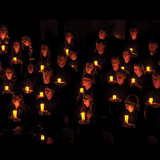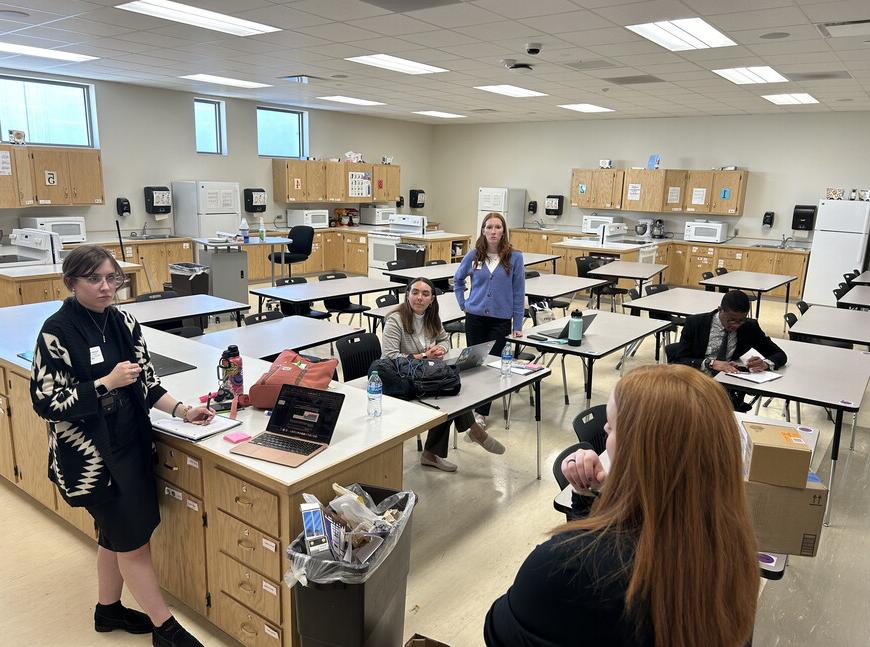The YMCA of Lincoln recently joined forces with students from Nebraska Wesleyan University (NWU) for a problem-solving competition aimed at increasing awareness, inclusivity, and participation in the YMCA's programs.
Twenty-four NWU students gathered at the Copple YMCA earlier this month to develop marketing ideas to help the renowned non-profit enhance its outreach and engagement efforts beyond fitness activities. “We feel the public does not fully understand the YMCA’s mission and core objectives and does not fully utilize our diverse array of services,” says Renee Yost, YMCA president and CEO. “We are keen on encouraging broader participation, particularly in underutilized programs, and nurturing progress in the vital realm of social responsibility."
NWU students from different areas of study competed on six teams. For two hours, the teams developed marketing campaigns and then presented their ideas to the YMCA staff, who selected the best pitch.
Yost says the YMCA plans to implement several of the suggestions. “We were thrilled with the ideas that came out of the event. These concepts will undoubtedly aid us in expanding our programs and furthering our reach into the community.”
She credits the students’ success to broad array of backgrounds and expertise. “A cross-disciplinary approach to problem-solving is important because it brings together diverse perspectives, skills, and methods for tackling complex issues. Many real-world problems do not fit neatly into one disciplinary box,” she says.
Owen Kimble (’27), a history major from Lincoln, Neb., says his group included students studying biochemistry, political science, and business. “They offered different perspectives from someone with educational experiences like me,” he says. “Biochemistry and history are about as different as it gets, but if it were just a bunch of history majors, I don’t think any idea would’ve panned out.”
Kimble says his skills to do research and deliver presentations fit well with the event and helped his group create a solution. “Initially we all had different ideas about how to go about it, but I think having different backgrounds helped us work out the kinks.”
And, Kimble says, he can apply this approach to real-world problems. “I think it is really valuable, not just for a problem-solving event, but for anything.”
This semester’s problem-solving event was the first competition under the new Philip S. Mullin Innovation and Entrepreneurship program. Beginning this fall, students in any discipline can enroll in the innovation and entrepreneurship major and learn the basics of being an entrepreneur.








